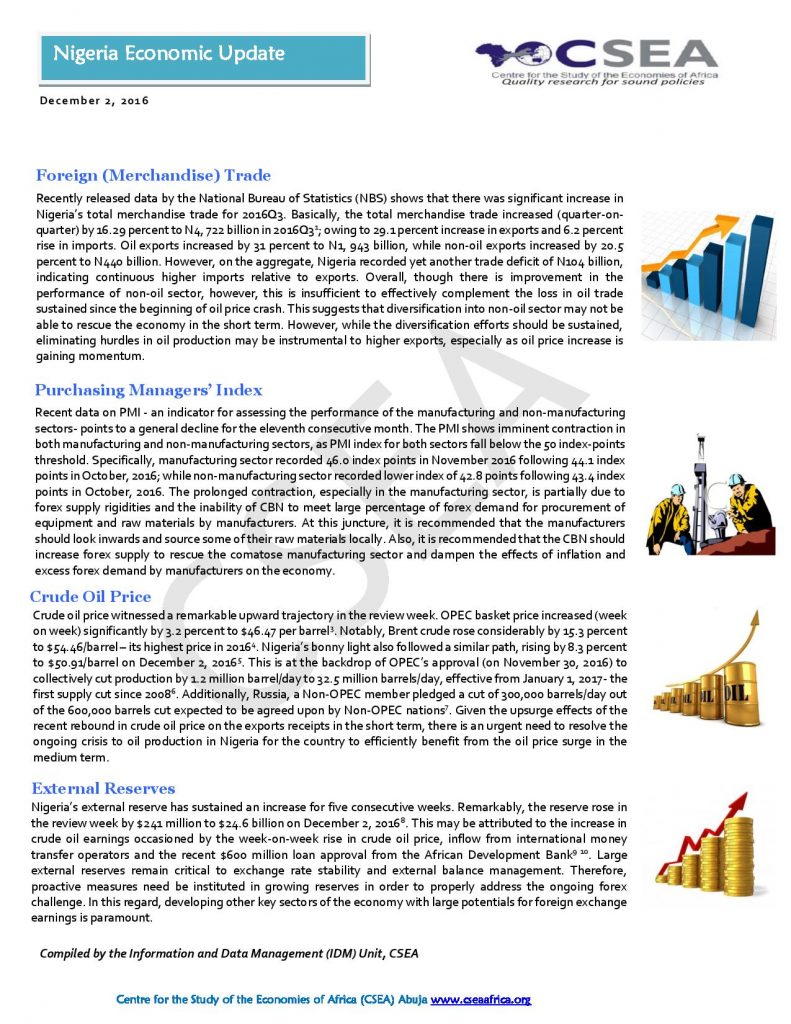Macroeconomic Report & Economic Updates

December 13, 2016
Nigeria Economic Update (Issue 51)
Recently released data by the National
Bureau of Statistics (NBS) shows that there was significant increase in Nigerias
total merchandise trade for 2016Q3. Basically, the total merchandise trade
increased (quarter-on-quarter) by 16.29 percent to N4, 722 billion in 2016Q3;owing to 29.1 percent increase in exports and 6.2 percent rise in imports. Oil
exports increased by 31 percent to N1, 943 billion, while non-oil exports
increased by 20.5 percent to N440 billion. However, on the aggregate, Nigeria
recorded yet another trade deficit of N104 billion, indicating continuous
higher imports relative to exports. Overall, though there is improvement in the
performance of non-oil sector, however, this is insufficient to effectively
complement the loss in oil trade sustained since the beginning of oil price
crash. This suggests that diversification into non-oil sector may not be able
to rescue the economy in the short term. However, while the diversification
efforts should be sustained, eliminating hurdles in oil production may be
instrumental to higher exports, especially as oil price increase is gaining
momentum.
